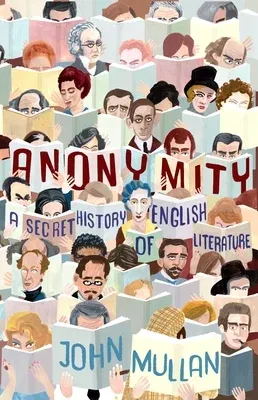Some of the greatest works in English literature were first published
without their authors' names. Why did so many authors want to be
anonymous--and what was it like to read their books without knowing for
certain who had written them? In Anonymity, John Mullan gives a
fascinating and original history of hidden identity in English
literature. From the sixteenth century to today, he explores how the
disguises of writers were first used and eventually penetrated, how
anonymity teased readers and bamboozled critics--and how, when book
reviews were also anonymous, reviewers played tricks of their own in
return.
Today we have forgotten that the first readers of Gulliver's Travels
and Sense and Sensibility had to guess who their authors might be, and
that writers like Sir Walter Scott and Charlotte Brontë went to
elaborate lengths to keep secret their authorship of the best-selling
books of their times. But, in fact, anonymity is everywhere in English
literature. Spenser, Donne, Marvell, Defoe, Swift, Fanny Burney, Austen,
Byron, Thackeray, Lewis Carroll, Tennyson, George Eliot, Sylvia Plath,
and Doris Lessing--all hid their names. With great lucidity and wit,
Anonymity tells the stories of these and many other writers, providing
a fast-paced, entertaining, and informative tour through the history of
English literature.

